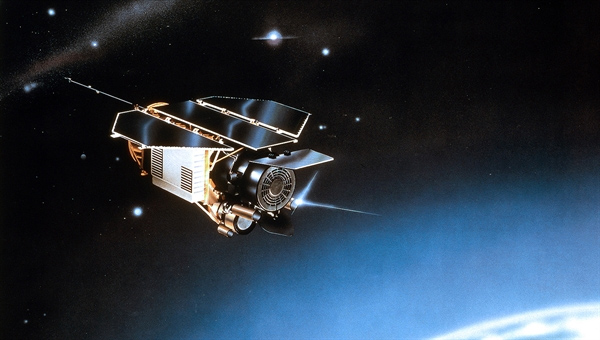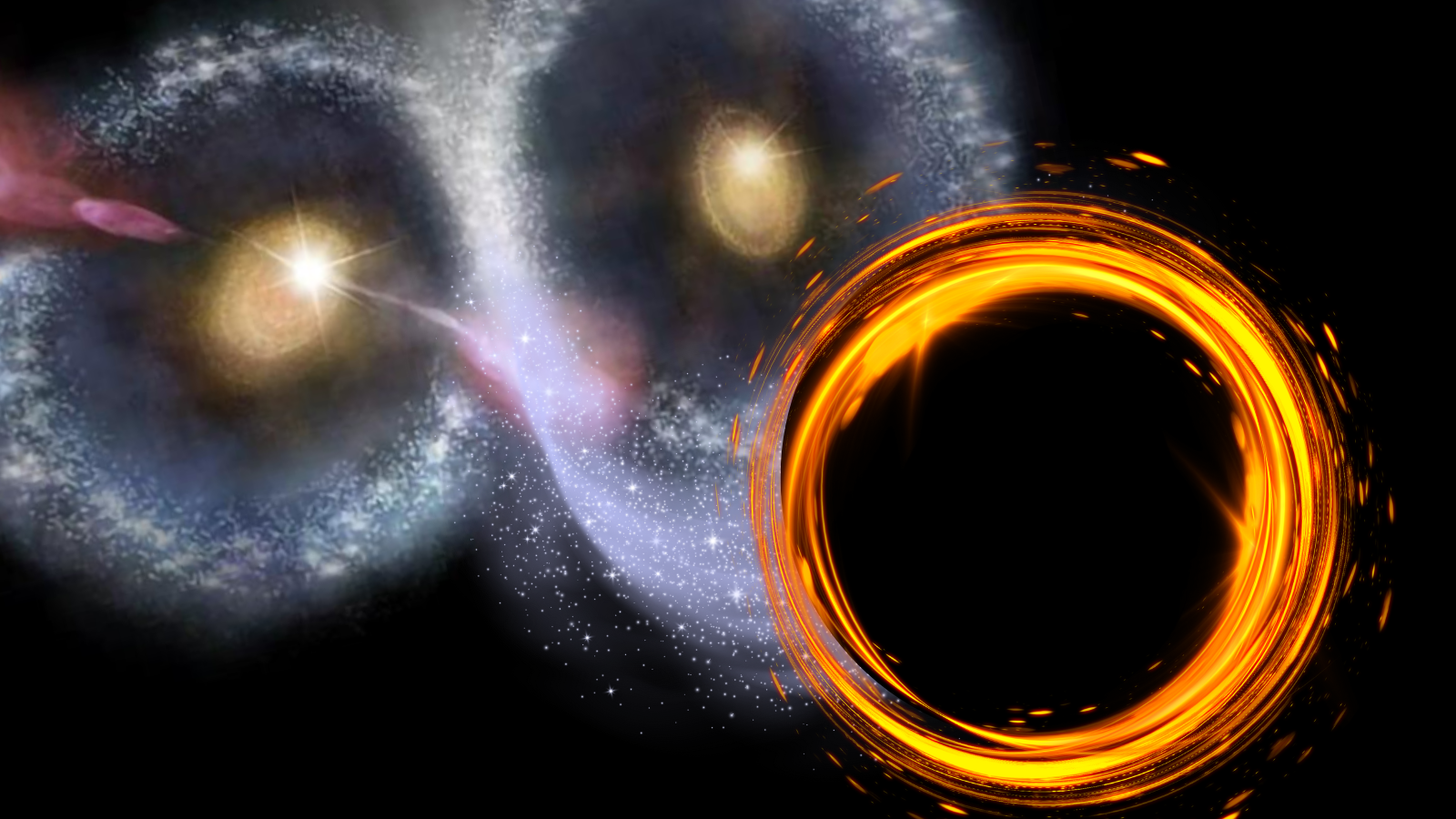Doomed German Satellite to Fall to Earth This Weekend

A defunct German satellite is expected to fall to Earth this weekend, with experts predicting that up to 30 big pieces of the junked spacecraft could hit the planet. But exactly when and where the satellite will fall remains a mystery.
The 2.7-ton Roentgen Satellite, or ROSAT, will likely plummet to Earth on Saturday or Sunday (Oct. 22 or 23), according to the latest update from the German Aerospace Center.
"Currently, the re-entry date can only be calculated to within plus/minus one day," agency officials said in a statement. "This time slot of uncertainty will be reduced as the date of re-entry approaches. However, even one day before re-entry, the estimate will only be accurate to within plus/minus five hours."
ROSAT weighs about 5,348 pounds (2,426 kilograms) and launched into orbit in June 1990 as part of a joint mission by Germany, the United States and the United Kingdom. In 1998, the satellite's star tracker failed, which caused its X-ray sensors to point directly at the sun. This permanently damaged the spacecraft, and ROSAT was officially decommissioned in February 1999. [Photos of Doomed ROSAT Satellite]
The falling German satellite's impending plunge through the atmosphere comes about a month after an old NASA climate satellite also fell uncontrolled to Earth, in what was a much publicized event. The Upper Atmosphere Research Satellite (UARS) splashed into the Pacific Ocean, well away from the North American coastline, on Sept. 24.
The ROSAT spacecraft is smaller than the UARS satellite, which was about the size of a school bus and weighed about 6 1/2 tons. Still, German space officials expect ROSAT to drop debris along a 50-mile (80-km) stretch of the Earth's surface.
The satellite's orbit reaches from the latitudes of 53 degrees north and south, which means ROSAT could fall anywhere in an area stretching from Canada to South America. While officials have stated that there is a 1-in-2,000 chance that a piece of ROSAT could strike someone somewhere on Earth, the odds of any debris landing in a densely populated area are remote.
Breaking space news, the latest updates on rocket launches, skywatching events and more!
Germany's X-ray ROSAT observatory is expected to break up as it falls to Earth, but some large pieces are expected to survive the intense heat of re-entry. Up to 30 pieces of debris, totaling 1.9 tons (1.7 metric tons), could reach the Earth's surface, German aerospace officials said. These fragments will likely be pieces of the satellite's heat resistant mirrors and ceramic parts.
Mission controllers are actively tracking the satellite as its orbit gradually decays, but officials will not be able to make more precise determinations of when and where the satellite will fall until a few hours before ROSAT impacts the Earth.
Editor's note: If you snap a photo or observe the re-entry of the ROSAT satellite and want to share it with SPACE.com for a story or gallery, contact managing editor Tariq Malik at: tmalik@space.com.
You can follow SPACE.com staff writer Denise Chow on Twitter @denisechow. Follow SPACE.com for the latest in space science and exploration news on Twitter @Spacedotcom and on Facebook.

Denise Chow is a former Space.com staff writer who then worked as assistant managing editor at Live Science before moving to NBC News as a science reporter, where she focuses on general science and climate change. She spent two years with Space.com, writing about rocket launches and covering NASA's final three space shuttle missions, before joining the Live Science team in 2013. A Canadian transplant, Denise has a bachelor's degree from the University of Toronto, and a master's degree in journalism from New York University. At NBC News, Denise covers general science and climate change.
